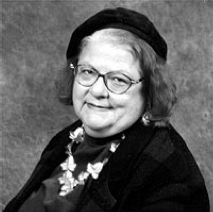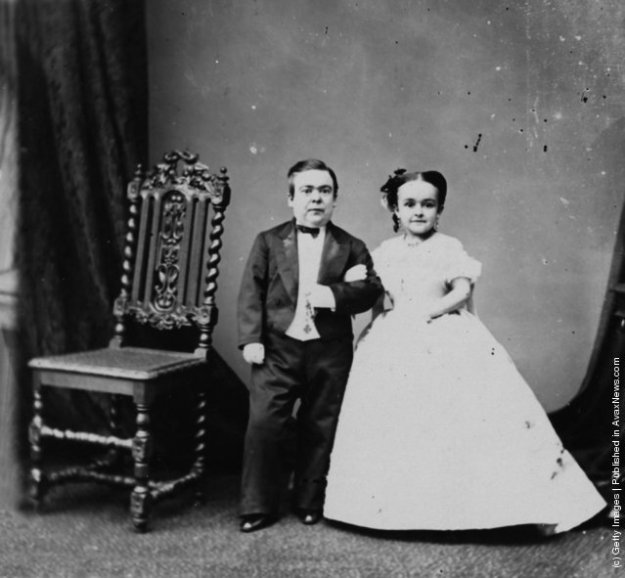
Dorothy Wertz
I have a simple reason for voting against Question 2, the “Death with Dignity” referendum, which would, if passed, legalize physician-assisted suicide in Massachusetts. People in the disability-rights movement who I respect are against it. And I agree with their reasoning.
Unlike other people you may have heard from on both sides of the question, I do not have any heartbreaking or poignant stories to share. Rather, I have a perspective that I gained a decade ago when I was researching my first book, “Little People.”
Among other things, I learned disability-rights activists worry that advances in medical technology are making it increasingly easy to diagnose genetic conditions in utero — thereby leading to the likelihood that parents will select abortion, even in cases (such as dwarfism) where the disability is not particularly severe or incompatible with what society considers to be a “normal” life.
Indeed, my wife and I encountered that attitude ourselves when our then-infant daughter saw a geneticist who wanted us to know there was nothing that could have been done. What she meant was that Becky’s dwarfism couldn’t have been diagnosed in utero (it could today), and thus we shouldn’t feel bad that we weren’t given a chance to choose abortion.
We were shocked, but I guess we shouldn’t have been. And in researching “Little People,” I learned from the geneticist Dorothy Wertz (pdf) that many people would choose abortion if they were told their child would be a dwarf — and, significantly, that medical professionals were more pro-abortion than lay people.
That’s the attitude disability-rights activists are worried about with regard to Question 2: a negative approach toward people who are sick or disabled, and who might be pressured into choosing suicide by family, insurance companies and doctors. And that’s why I’m voting no.
I urge you to read a truly moving essay in this week’s Phoenix by S.I. Rosenbaum, and to listen to an interview that was broadcast in September by WBUR Radio (90.9 FM) with disability-rights activist John Kelly, who opposes Question 2, and Dr. Marcia Angell, who’s for it. You can also learn more about the reasons for opposing physician-assisted suicide at Second Thoughts. The argument in favor is available at Death with Dignity.
What follows is an excerpt from “Little People” dealing with research about attitudes about disability and abortion.
***
I interviewed Dorothy Wertz, a psychiatrist affiliated with the Eunice Kennedy Shriver Center in Waltham, on a cold February day in the sunroom of her home on Massachusetts’s South Coast. Her husband was dying of lung cancer. She would die a year later. Nevertheless, she cut a flamboyant figure, tall and with a strong physical presence despite her advanced years, wearing a pillbox hat, turquoise earrings, and an enormous silver-and-turquoise necklace that looked heavy enough to weigh her down. I’d met her years earlier when I took part in a study she’d overseen regarding the attitudes that parents of disabled kids hold toward the medical establishment. I liked her forthright, down-to-earth manner. What I didn’t like so much was what she had learned about attitudes toward disability — including dwarfism.
In the late 1990s Wertz conducted a study of about two thousand people — 1,084 genetics professionals, 499 primary-care physicians, and 476 patients. One of the disabilities that participants were questioned about was achondroplasia, the most common form of dwarfism. The results were stunning. Among the genetics professionals, 57 percent would choose abortion if it were detected in utero; among physicians, 29 percent; and among patients, 24 percent.
To bracket this, let me pull out two other findings. The first pertains to Down syndrome, certainly a serious genetic condition, but one not incompatible with a good quality of life. Here the proportion of genetics professionals who would abort was 80 percent; physicians, 62 percent; and patients, 36 percent. The second involves a genetic predisposition to severe obesity, which is not a disability at all, or even destiny. After all, parents can teach their kids to eat properly and lead healthy, active lives. Yet even in this instance, 29 percent of genetics professionals would choose to abort, as well as 13 percent of physicians and 8 percent of patients.
What’s frightening about all of this is that we are closer to screening for such conditions on a routine basis than many people realize. Some day — perhaps in a decade, perhaps two or three — it will be possible to lay out a person’s entire DNA on a computer chip, all thirty thousand or so genes, and compare that person’s DNA to the ideal. Such chips could be generated for early-term fetuses just as easily as for those already born. Once the use of such technology becomes routine, it would cost “mere pennies per test,” as Wertz has written, to screen fetuses for thousands of genetic conditions. Including, of course, achondroplasia and several other types of dwarfism.
Wertz’s study points to another potential concern. Across the board, her findings show that ordinary people are far less likely to choose abortion than are medical professionals. (To be sure, one in four ordinary couples would choose abortion if they learned their child would have achondroplasia, which is high by any measure.) Yet it is medical professionals who will counsel couples when they learn that the child they are expecting would have a disability. What kind of pressure will these professionals use to obtain what is, to some of them, the preferable result? If we had learned the fetus Barbara was carrying in the early spring of 1992 would have severe respiratory problems and could have a whole host of other complications as well, what would we have chosen to do? There was no Becky at that point, only a possibility. And the possibility would have sounded more frightening than hopeful.
Little People of America has long argued that prospective parents who learn that their child will have a type of dwarfism should be provided with information about the good lives that most dwarfs lead, and even be given a chance to meet dwarf children and adults. It’s a great idea. But will it happen? And at a time of skyrocketing medical costs, are there too many social pressures against that happening? There’s no doubt that, in many instances, abortion would be in the best interest of insurance companies. Think of all the money they could save if they refused to cover a fetus that has been diagnosed with a potentially expensive genetic condition. Some parents, of course, would not choose abortion because of their religious or moral beliefs. But what about the vast majority of us — the people who regularly tell pollsters that they’re pro-choice, although they may be deeply uncomfortable with abortion personally? Would they be able to resist — would they, should they, even attempt to resist — when faced with the possibility of financial ruin?
And abortion is just one part of this, a crude, archaic approach that will likely fade away with improvements in medical technology — improvements that will raise few of the moral qualms that so divide the culture today. For instance, when you think about it, sex is a really messy, random way of reproducing. Sure, it’s fun. But look at all the things that can and do go wrong. In his book Redesigning Humans, Gregory Stock argues that in vitro fertilization will someday be seen as the only proper way to have children. “With a little marketing by IVF clinics,” he writes, “traditional reproduction may begin to seem antiquated, if not downright irresponsible. One day, people may view sex as essentially recreational, and conception as something best done in the laboratory.”
Even average-size couples who wouldn’t abort a fetus with achondroplasia would, in all likelihood, choose against implanting an embryo with the mutation. You’ve got five embryos in that Petri dish over there, and you can only implant one. This one has the genetic mutation for Down syndrome; that one has the mutation for achondroplasia; the other three are mutation-free. All right, which one do you think should be implanted?
And thus we will take another step down the road toward the “new eugenics” — a road that, in Stock’s utopian vision, will include artificial chromosomes to include spiffy new designer genes that will protect our descendants from disease, help them to live longer, and make them smarter, better, happier, and just generally imbued with oodles of wonderfulness.
Ultimately Stock posits a world in which we’re going to eliminate achondroplasia and hundreds, if not thousands, of other genetic conditions, predispositions, and tendencies. And we’re going to do it either by eliminating any individual whose genes we don’t like — or we’re going to change the genes.





